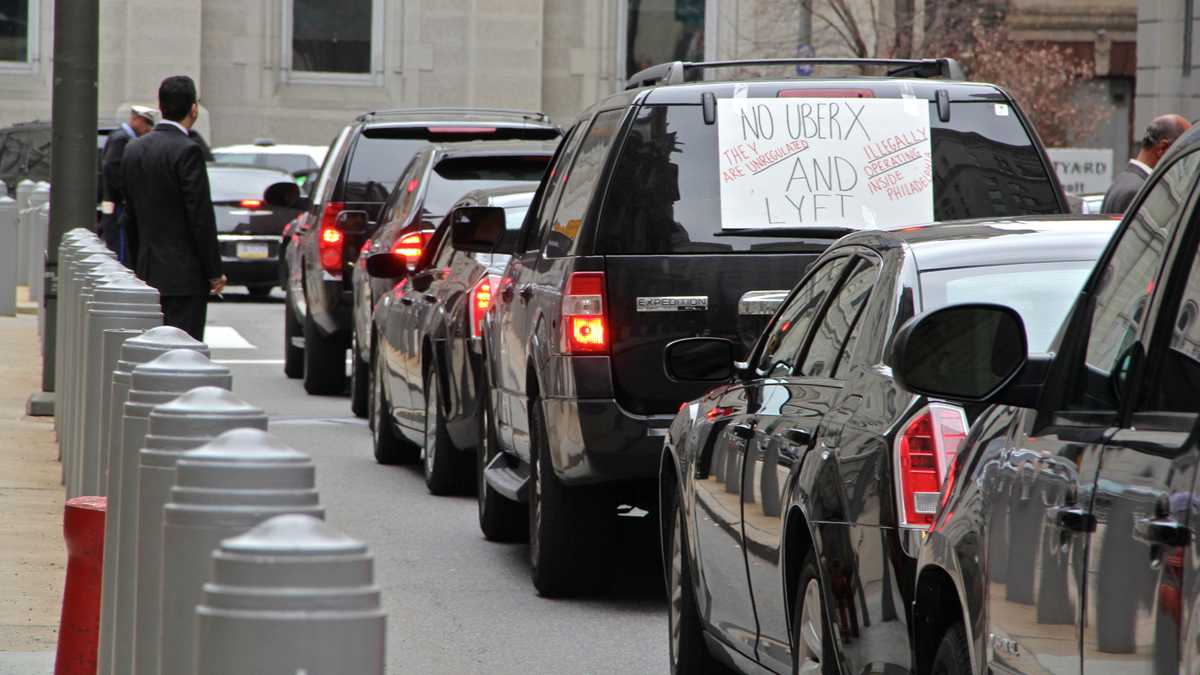Uber and Lyft illegal again in Philly, as General Assembly lets temporary authorization sunset

The General Assembly entered into recess on Wednesday without extending the temporary legalization of Transportation Network Companies (TNC) like Uber and Lyft in Philadelphia, which ends on Friday. Starting Saturday, ride-hailing companies operating within Philadelphia will once again be considered illegal cabs in the eyes of the law. Whether the PPA will also look at them like hack taxis remains to be seen.
TNCs will remain in a legal gray zone until October 17th and the earliest, when the General Assembly reconvenes. After that session, there is just one lame duck session in November before Harrisburg finishes the legislative term.
The interim TNC legalization was added to omnibus bill Act 85 when it passed in July, just days after the PPA announced a 90-day “temporary agreement” to allow Uber—but no other TNC—to operate legally in Philadelphia. That agreement ends October 5th.
“We are hopeful that a resolution to this issue can be found when the legislature returns to session in mid-October,” said Ben Waxman, communications director for Senator Vincent Hughes, who has led efforts to pass a permanent TNC authorization bill.
TNCs will remain legal throughout the rest of Pennsylvania, where they are regulated by the Pennsylvania Utility Commission. Philadelphia has separate laws covering the operation of taxis and limos, which are regulated by the Philadelphia Parking Authority.
In an interview with PlanPhilly last week, representatives from Lyft expressed a faint hope that the temporary legalization’s sunset would be extended as long term legalization. Taxicab companies and drivers have long fought TNC legalization that would not also reduce the regulatory burden on taxis, which is significantly more onerous than the oversight Act 85 imposed on TNCs, or to reserve certain services, such as taxi stand and airport pickups, exclusively for licensed taxis.
Both Lyft and Uber picked up passengers in Philadelphia before Act 85 and show no signs of stopping now, not over a technicality like the law. Representatives for Lyft declined to say how much of the tax the company had paid to date, as those figures could be used to roughly estimate how many Philadelphians were using Lyft.
“Due to the legislature’s failure to act we are actively working with regulators to continue the regulated ridesharing model that is currently in place and are confident that we will be able to continue to operate in Philadelphia,” said an Uber spokesperson via email.
They will, however, stop paying a one percent tax on their gross receipts. One-third of the tax went to the PPA to cover the cost of overseeing TNCs, and two-thirds went to the School District.
“Since the temporary ridesharing framework passed this summer, Philadelphia has seen tens of thousands of dollars from Lyft alone go to our City schools,” Lyft spokeswoman Chelsea Harrison said in a written statement. “Unfortunately, all of this progress is coming to an abrupt and sudden end on Oct. 1 because legislators have failed to act on either making the agreement permanent, or extending it so that we can continue to work toward creating a permanent framework that works for all of Pennsylvania.”
The PPA has been sued by Philadelphia taxicab owners over their regulation of TNCs, or lack thereof. The suit alleges that, for legal purposes, Uber and Lyft are no different from any other taxi, so the PPA’s failure to enforce taxi regulations against them amounts to arbitrary discrimination that violates the 14th Amendment’s Equal Protection clause, a charge PlanPhilly predicted back in July. The same suit also alleges that the regulator’s disparate treatment destroyed the value of taxi medallions, amounting to a regulatory taking of the owner’s property without due process of the law.
Even if a bill legalizing TNCs does pass, it might not be the end of the ride-hailing legal headaches. Even after California passed a law specifically legalizing TNCs, Uber ignored it, resulting in multi-million dollar fines and ongoing lawsuits over the company’s thoroughness on driver background checks.
WHYY is your source for fact-based, in-depth journalism and information. As a nonprofit organization, we rely on financial support from readers like you. Please give today.



